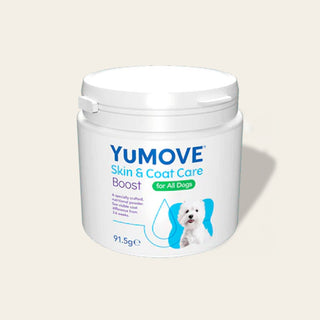

Hypoallergenic dogs: fact and fiction
We’re all much more aware of allergies these days and their potential to disrupt our lives. And the numbers of people claiming that they or their children are allergic to dogs is rising. But are hypoallergenic dogs the answer? We take a look.
It ain’t easy being sneezy
It’s miserable when you’re allergic to dogs. Your eyes go red and itchy, you break out in a rash, you cough and splutter, you sneeze your way through an entire box of tissues.
What’s worse, you can’t hang out with dogs or in the homes where they live.
Being allergic to dogs not only prevents you from getting close to the best animals on the planet (in our unbiased view), it can also stop you from socialising with their owners.
How serious is the problem?
But how many people are actually allergic to dogs? In one study[1], researchers found that around 8% of adults in the UK are sensitive to dog allergens (things that cause allergic reactions), while 39% were sensitised to pollen and 36% to house dust mites.
Interestingly, though, some research shows that having a dog in the house while a child is in its first year of life can have a protective effect against allergies such as asthma.[2]
Getting under the skin of dog allergies
Although many people think that dog allergies are caused by their fur, that’s not the case. The problem is more likely to be dander - microscopic flakes of skin that get stuck in your dog’s fur. When you groom or stroke your pup, these flakes fly off into the air where you can breathe them in. And, if you’re allergic, that’s when they’ll set off an allergic reaction.
Dander is likely to settle on carpets and in furniture, waiting to be swirled back into the atmosphere whenever you dust, vacuum or plump up a cushion. This makes it both hard to eliminate and hard to avoid.
With dogs, saliva and urine are other common allergens. So a loving lick from a dog, or contact with a patch of carpet where your puppy’s had an accident, can also get those allergy alarm bells ringing.

Chain reaction
If you’re allergic to dogs, you’re probably suffering because you have an over-sensitive immune system. Your body senses the incoming doggy allergens and goes into battle mode, attacking them and trying to flush them out as though they were a virus or bacteria. Hence the sneezing and watery eyes.
Searching for a dog that doesn’t shed
If you or your children are allergic to dogs, but want a furry friend in your family, a hypoallergenic dog might seem like the obvious solution.
And if you search online, you’ll find endless lists of dogs that claim to be hypoallergenic. Here are a few of the most popular examples:
- Tibetan Terriers
- Shih Tzu

- West Highland White Terrier
- Portuguese Water Dog
- All sizes of Schnauzer – miniature, standard and giant
- Maltese
- Bichon Frise
- All types of Poodle – toy, miniature and standard
- Poodle crosses such as the Cockapoo and Labradoodle
- Afghan Hound
- Bedlington Terrier
Many articles claim that these dogs are hypoallergenic because they shed less. The idea is that since a dog’s dander and saliva stick to its fur, if a dog moults less frequently, these allergens are less likely to be released into the environment.

Misinformation and barking theories
The theory might sound convincing, but it doesn’t hold water. None of the scientific studies we’ve seen confirm that a dog can be truly hypoallergenic. Instead, they say this kind of thing:
“The internet has widely spread information on topics such as ‘low’ or ‘hypoallergenic’ pets when there is little supporting scientific evidence.”
‘Do hypoallergenic cats and dogs exist?’, University of South Florida[3]
Cut down on allergens in your home
If you’re allergic to dogs, it’s probably worth considering if a dog is the right pet for you.
In the meantime, though, if you have a dog and want to cut down on the number of allergens floating around your home, here are a few tips.
- Groom your dog regularly to cut down on the amount of hair that your dog sheds.
- Wash your dog (with dog-friendly shampoo) to reduce the saliva allergens in your dog’s coat.

- Wash your pet’s bed and blankets frequently – as well as any stuffed toys.
- Give your dog a high-quality diet as that may help reduce dander production.
- Keep your dog out of bedrooms.
- Dust and vacuum regularly, and clean upholstery and curtains.
- Change your clothes if you’ve been in close, prolonged contact with your dog (e.g. you’ve been hugging them tight during a scary horror film).
Keep your dog’s skin and coat healthy
Finally, here are a few YuMOVE links that you might find helpful:
- How to take care of your dog’s skin
- What to do if your dog has dandruff
- Boost your dog’s coat and skin with our YuMOVE Skin and Coat Supplements for dogs
[1] https://www.ncbi.nlm.nih.gov/pubmed/12589363
[2] https://journals.plos.org/plosone/article?id=10.1371/journal.pone.0208472
[3] https://www.ncbi.nlm.nih.gov/pubmed/22289723
Previous article
Bee-friendly borage and how it helps your ...Upcoming article
Glucosamine For Dogs - The Breakdown






